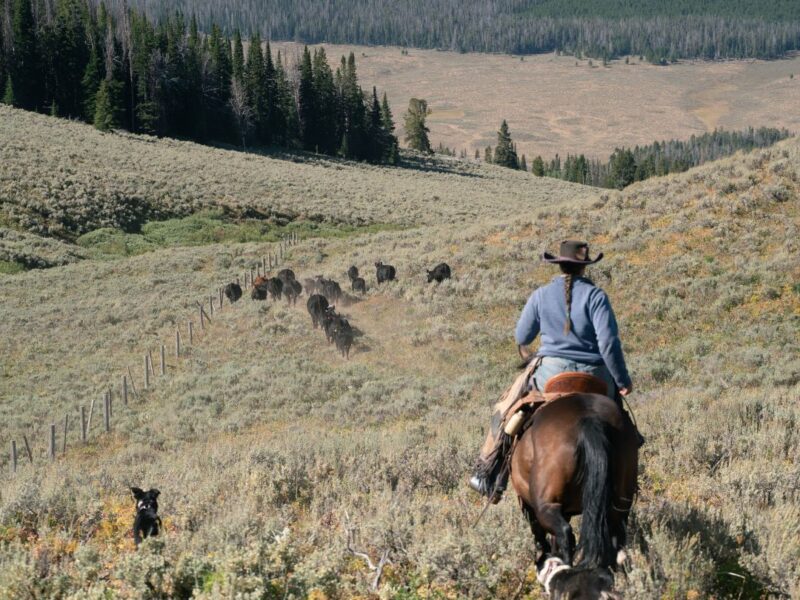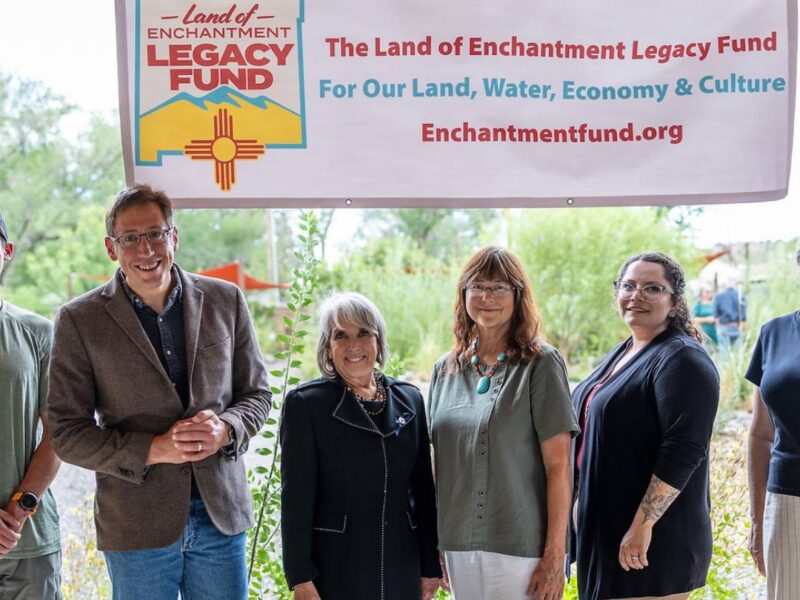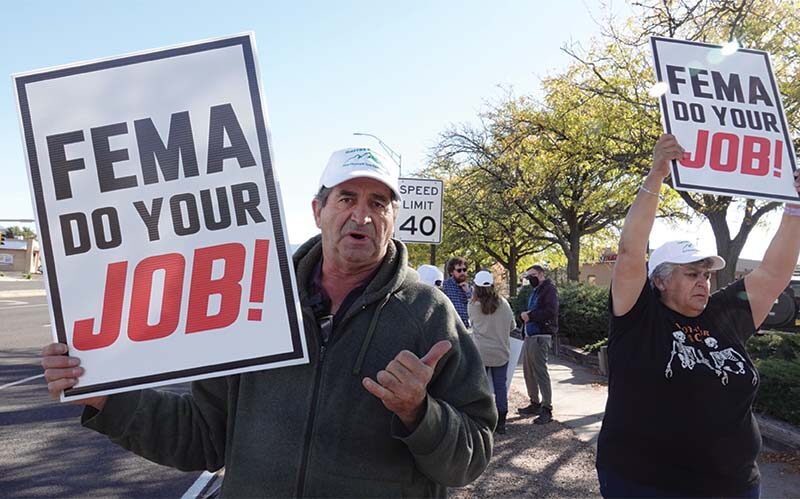The Committee recognizes that working farms and ranches can provide important migratory habitat for big game and other wildlife species and commends NRCS and FSA on their collaboration with State Governments and other partners to conserve these important working lands.
While the prospects for passing a renewed farm bill in 2024 are increasingly dim, important policy direction is taking shape in the new bill that supports working lands. Habitat leasing, valuable for western landowners, was piloted under the current farm bill with the unique ability for producers to enroll in Grassland Conservation Resource Program (CRP) and the Environmental Quality Incentives Program. These programs help landowners steward wildlife habitat and implement pricey conservation practices such as wildlife-friendly fencing and water developments. Last week, crucial language prioritizing funding for these opportunities made it into the Senate Agriculture Appropriations Bill report:
Migratory Big Game Initiative.—The Committee recognizes that working farms and ranches can provide important migratory habitat for big game and other wildlife species and commends NRCS and FSA on their collaboration with State Governments and other partners to conserve these important working lands. The innovative application of Grassland CRP and EQIP in tandem is especially important. Leveraging the unique payments, cost-share, and technical assistance that these programs provide against one another—as is being done through the USDA Migratory Big Game Initiative in Wyoming, Montana and Idaho—provides expanded support and management flexibility for producers stewarding wildlife habitat while keeping lands in production. The NRCS and FSA are encouraged to cooperate in expanding this innovative model to other States. The Committee directs NRCS to submit a report to the Committee within 90 days of enactment of this act on the progress made in implementing the Migratory Big Game Initiative, outlining plans for expanding the Migratory Big Game Initiative into additional States, and identifying barriers to achieving the goals outlined by the initiative.
This is an important first step to including key policy recommendations in the farm bill that WLA has been advancing for over two years. The language complements marker bills that are moving through the House and Senate. The ‘Habitat Connectivity on Working Lands Act’ would allow dual enrollment in the Environmental Quality Incentives Program and the Grassland Conservation Reserve Program in areas with Big Game migrations, increase the payment limitation for Grassland CRP from $50,000 to $125,000, and add virtual fencing to practice standards to aid in wildlife connectivity.
While the 2024 Farm Bill passed the House Agriculture Committee and a competing version was released in the Senate Agriculture Committee, it is unlikely that lawmakers will finalize the bill before the September deadline. An extension of the 2018 Farm Bill is expected for 2025. For now, WLA is grateful for the coalition of partners, landowners, and leaders who are working hard to support farm bill legislation that supports landowners and wildlife conservation.




